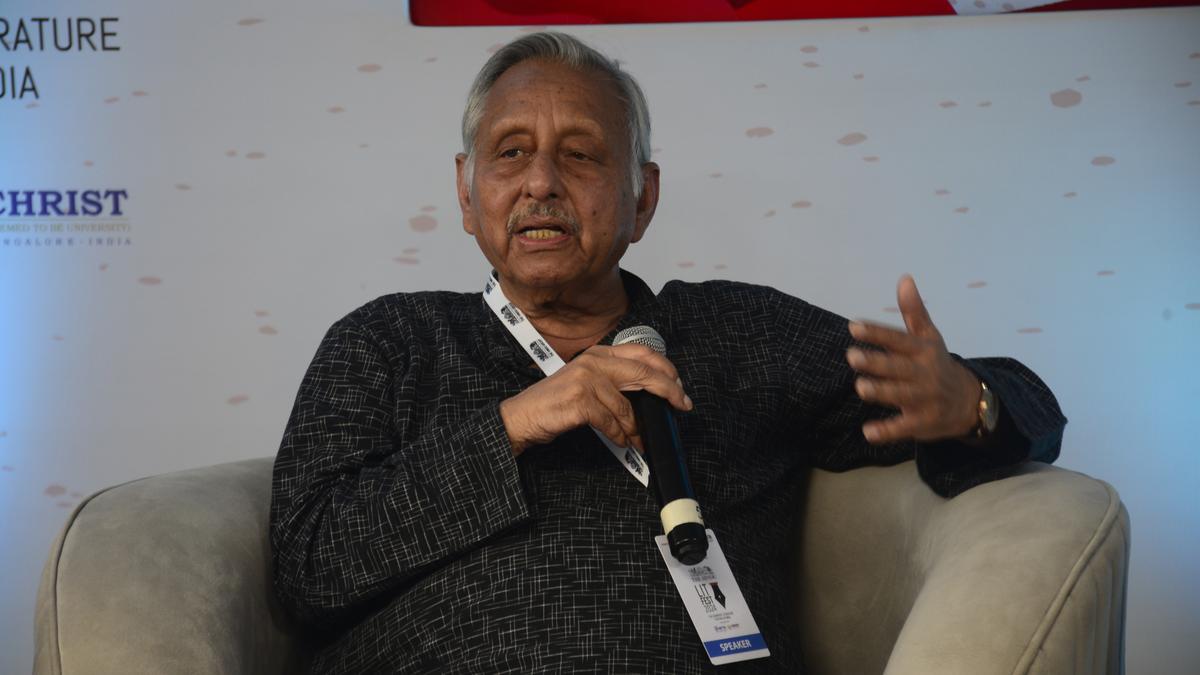 |
|
Mani Shankar Aiyar's recently released memoir, "A Maverick in Politics," offers a fascinating glimpse into the inner workings of Indian politics, particularly during the era of Manmohan Singh's premiership. A key revelation within the book concerns Dr. Singh's own assessment of his chances of becoming Prime Minister. Aiyar recounts a conversation from January 1998, when he attempted to persuade Dr. Singh to join the Trinamool Congress. During this meeting, Aiyar, armed with the Trinamool supremo Mamata Banerjee's authorization to offer Dr. Singh the prime ministership if political circumstances warranted, was met with a surprising response. Dr. Singh, according to Aiyar, expressed deep-seated pessimism about a Sikh ever reaching the highest office in India. This sentiment, Aiyar notes, stemmed from the lingering trauma associated with the events of 1984, including Operation Blue Star and the subsequent anti-Sikh riots, which left deep scars on the Sikh community and the nation's psyche. The statement reveals a significant personal and political burden that Dr. Singh may have carried throughout his career.
Aiyar's memoir goes beyond this single, impactful revelation. It provides a detailed account of his own political journey, including his experiences navigating the complexities of the Congress party, his evolving relationship with the Gandhi family (particularly Rahul Gandhi), and his eventual distancing from the party. The book also delves into Aiyar’s time within the United Progressive Alliance (UPA) government, offering an insider's perspective on the challenges and controversies that characterized UPA-II. The narrative covers a range of crucial events, including the Anna Hazare-led anti-corruption movement, the various alleged scams that plagued the government, and the internal dynamics of the Congress party during this period. Aiyar’s candid assessment of the government's handling of these crises sheds light on the decision-making processes and internal conflicts within the UPA government. The memoir paints a picture of a period marked by political turbulence, both within the ruling coalition and within the Congress party itself.
The memoir further explores Aiyar's views on alternative leadership options for the Congress party. Aiyar suggests that in 2012, following Prime Minister Singh's health challenges, a shift in leadership roles would have been beneficial for the government and the party. He proposes that Pranab Mukherjee should have been appointed as Prime Minister and Manmohan Singh elevated to the position of President of India. This proposition highlights Aiyar's assessment of the state of governance during UPA-II and his own reflections on strategic leadership choices within the Congress party. The account is framed against the backdrop of Sonia Gandhi's concurrent health issues, highlighting the interplay between personal health and political leadership during a critical period in Indian politics. Aiyar’s analysis of this potential leadership swap is an interesting counterpoint to the decisions that were actually made and presents a potentially different trajectory for the Congress party. The description of these events, seen through the lens of Aiyar’s personal experience, is a valuable addition to the historical record of this significant phase in Indian political history.
Beyond specific political events, Aiyar's memoir also reveals personal reflections and anecdotes, offering a more nuanced understanding of the political figures and events he describes. The inclusion of his wife's emotional response to the various scams during UPA-II demonstrates the human impact of political events, adding an element of personal vulnerability to the overall narrative. By intertwining personal experiences with political analysis, Aiyar presents a richly textured account of his years in Indian politics. The book also touches upon the changing dynamics within the Congress party, Aiyar's evolving relationship with various leaders, and the political shifts that have taken place in recent years. Aiyar's perspective, informed by his long career in politics, provides valuable insight into the complexities of power, ambition, and the human element within the often-opaque world of Indian political maneuvering. The detail in which he describes both large political events and the finer points of internal party politics makes his memoir a significant contribution to understanding a specific and significant period in modern Indian history.
In conclusion, Mani Shankar Aiyar's memoir provides a multifaceted account of Indian politics. It not only offers valuable insights into the perspectives and beliefs of key figures like Manmohan Singh, but also delves into the intricacies of governance, party politics, and the human drama that unfolds behind the scenes of national leadership. The candid nature of the memoir, coupled with the detailed analysis of critical political junctures, makes it essential reading for anyone seeking a deeper understanding of contemporary Indian political history. Aiyar’s narrative serves as both a personal retrospective and a critical assessment of a crucial period in India’s development, providing insights that challenge conventional narratives and stimulate further discussion and analysis.
Source: Manmohan Singh believed India would never have a Sikh PM, Mani Shankar Aiyar says in his memoir
